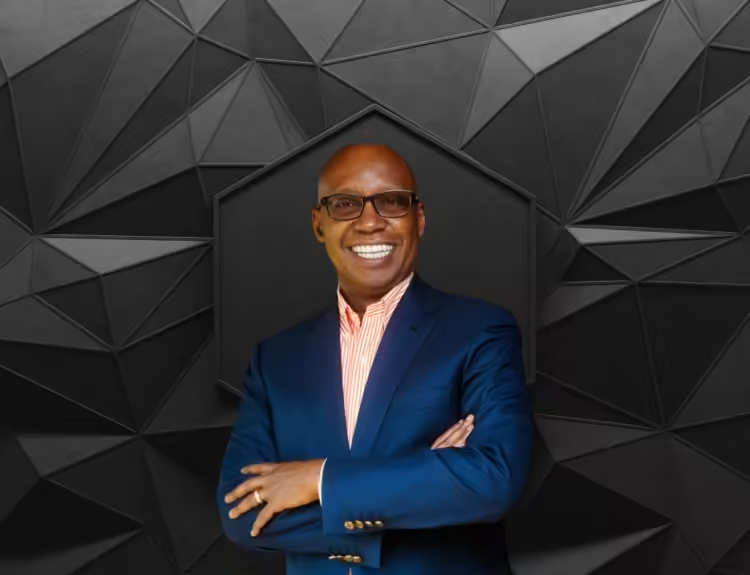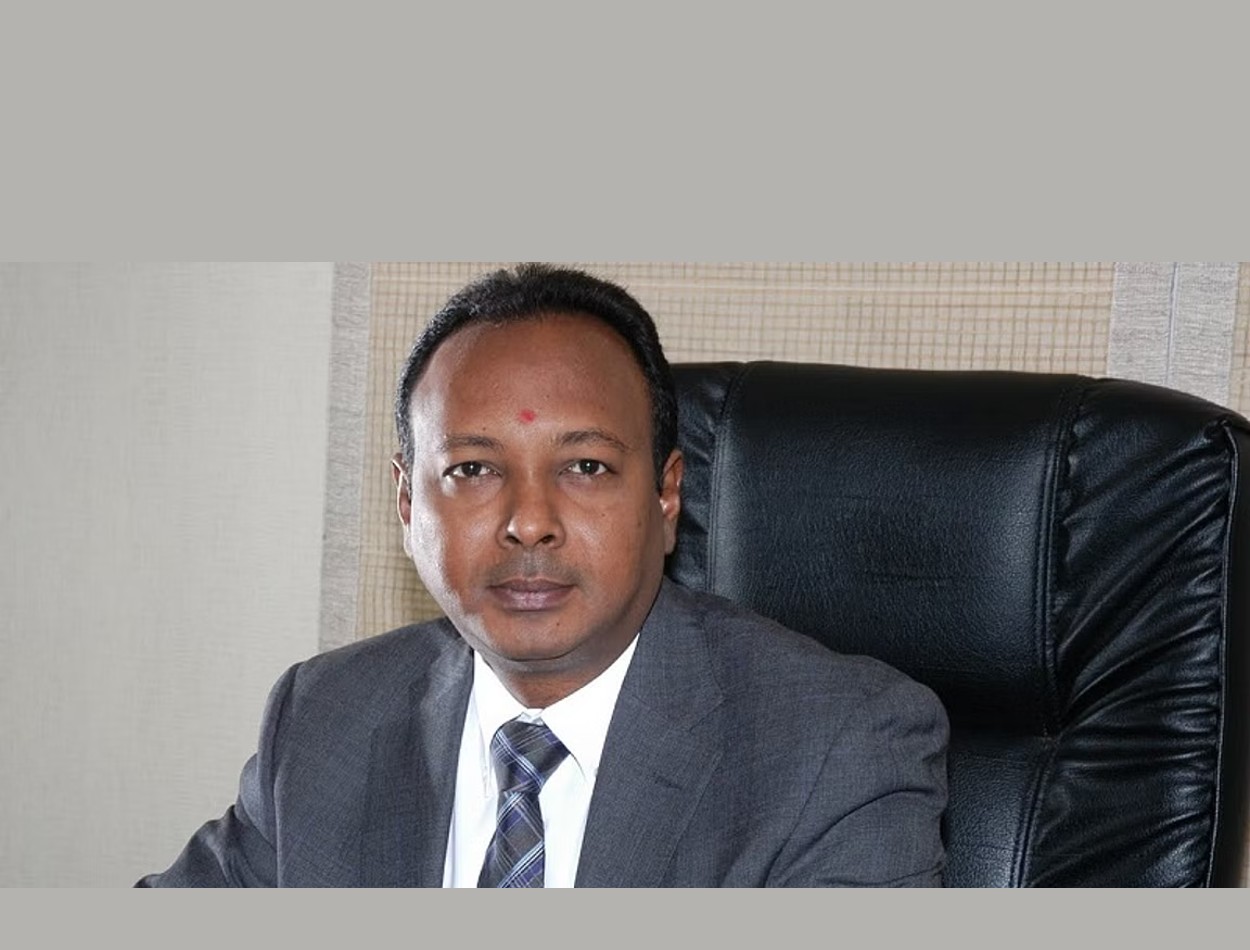Naushad Merali, the iconic Kenyan businessman who chaired the Kenyan conglomerate Sameer Group, passed away in 2021 at the age of 70.
However, his legacy as a smart, risk-taking, and cutthroat businessman lives on. Renowned for his sharp business acumen and audacious strategies, Merali’s career is filled with daring moves that left an indelible mark in the business world.
One of the most iconic moves in Merali’s illustrious career was his strategic manoeuvre during the sale of Airtel, then known as Kencell Communications. In 2004, Merali, who owned 40% of Kencell, exercised his pre-emption rights and convinced his partner, French firm Vivendi, to sell its 60% stake in the company.
What followed was a masterful boardroom game that pitted several giant companies against each other, all vying for Vivendi’s stake. Merali bought Vivendi’s stake for $230 million only to turn around and sell it to billionaire Mo Ibrahim’s Celtel for $250 million the very same day. This impressive deal earned him $20 million in a matter of hours, showcasing his exceptional negotiation skills and foresight.
Another notable sell-off in Merali’s career was that of Equatorial Commercial Bank, which he founded in 1983. He sold the bank to Mwalimu National Sacco about 30 years later for an estimated $18.3 million. However, this sale attracted controversy when it was revealed that Merali withdrew about $12.9 million (a fifth of the bank’s deposits) from the bank days after the sale. This withdrawal significantly hurt the lender’s prospects as it was seen as a vote of no confidence. The move prompted other clients to also withdraw their deposits, further destabilizing the bank.
Merali’s career is decorated with a multitude of sell-offs that elevated his profile as a master of buyouts. He was known for acquiring unprofitable companies, turning them around, and selling them for a profit. This craft, which he honed and leveraged throughout his career, earned him a fortune and solidified his reputation as a savvy businessman.
In 2015, Forbes named Merali Africa’s third richest man, with a net worth of $370 million, highlighting his significant impact on the continent’s business landscape.
Contents
Early life and education
Naushad N. Merali was born on January 2, 1951, in Mombasa. His family relocated to Moshi, Tanzania, where a young Merali and his siblings attended primary school.
After the then-Tanzanian president, Julius Nyerere announced the Arusha Declaration in 1967, Merali moved back to Kenya, where he completed his high school education at Highway Secondary School.
He then travelled to Britain a year later, where he studied accounts and finance at a college on Oxford Street in London. When he returned to Kenya in 1973, it was to marry Zarina, a girl selected for him by his mother.
Career
In his 20s, Merali began working as a finance clerk at a Kenyan garage, Ryce Motors. In a past interview with Forbes, the tycoon disclosed that at the time, all he was focused on was making ends meet for his family. That was until his boss informed him that he was relocating to Germany. It was then that Merali conceived the idea of taking over Ryce.
“The owner, Frank Ryce, was getting old and wanted to go back to Germany. So I thought to myself, ‘Why should I let this company go after working here for so long?’ I went for it,” Merali recalled.
He took a $1,500 loan from the Bank of America, now known as Commercial Bank of Africa (CBA), and used it to buy Ryce Motors. This marked his entry into entrepreneurship. He went from finance clerk to managing director overnight. He expanded the business and six years later, got an opportunity to venture into construction. He invested in the construction company H Young, and this became his first buyout.
In 1985, Merali bought out the Commercial Bank of Africa Group in a move that left his friends and family thinking he had lost his marbles. “You see, I signed a deal of $600,000 but believe me, I only had $6 in my pocket and had 90 days to complete it,” Merali said to Forbes, adding, “A family friend even asked my wife to have my mental status checked.” While this purchase left many confused, it was one of many strategic and profitable moves Merali would make in his career.
He formed a consortium made up of Kenya’s elite, including the Kenyatta family, to complete the acquisition. The buyout was one of the country’s biggest by a Kenyan. It opened the door for several other subsequent acquisitions such as First National Bank of Chicago, Firestone East Africa, Eveready East Africa, and Sasini.
To order these acquisitions, Merali formed a holding company for his business empire and named it after his son, Sameer.
Sameer Group
The Sameer Group is a conglomerate of about 15 Kenyan companies ranging from financial services to agriculture, real estate, and information technology.
Some of the companies under Sameer are Sasini, Savanna Coffee Lounge, Sameer Industrial Park (a premier export processing zone established in 1991), a corporate showroom along Mombasa Road, Eveready Head Office, and Ryce Engineering.
The company also owns shares in Firestone East Africa, a well-known tyre brand which they later rebranded to Yana Tyres.
Additionally, the conglomerate owns 33% of Farmsecure, a South African agricultural company, and has dairy operations in Uganda. Notably, it was the success of Sameer Agriculture and Livestock in Uganda that prompted Merali to start a similar dairy company in Kenya, Daima.
Major buyouts
The master of buyouts made several acquisitions throughout his career and though not all went well, most were quite iconic. He told Forbes that he made most of these acquisitions on instinct.
Sasini
For instance, he bought Sasini from a stranger on a plane. “There was this fellow next to me and we started talking about what he was doing in Kenya. He said that he had come from a board meeting for Sasini, but I did not know what Sasini was,” the business magnate recounted.
He later realized that the stranger on the London-bound aircraft was the chairman of Mercanta, a company listed in the United Kingdom (UK). The duo conversed and Merali decided to buy the tea company despite having no prior experience in the field. However, he was confident and insisted that the ‘stranger’ name his price.
“He said GBP 10 million and we shook hands. That was on May 1, 1989, and on June 1, he had his check and I had his company!” the mogul explained.
Kencell
In 1991, when Merali heard that French firm Vivendi was looking for a partner to invest in what would be Kenya’s second mobile phone service provider, he went all in and ended up with a 40% stake in the telco, Kencell.
However, a few years later, the French firm faced internal problems compounded by the 2001 terrorist attack on the World Trade Center towers in New York and decided to exit the Kenyan market.
Vivendi made an offer to Merali first, owing to his pre-emption rights, and gave him 15 days to come up with $250 million. At the same time, perhaps convinced that the tycoon would not raise the funds, Vivendi started negotiations with South African firm MTN.
Merali contacted his friend Mo Ibrahim, who had been trying futilely to break into the Kenyan telco market with his cellular services provider Celtel. Ibrahim was more than happy to take up the $250 million offer. Merali negotiated, and Vivendi agreed to sell the 60% stake at $230 million, which ultimately resulted in Merali going home with a $20 million profit in a matter of hours.
“Always remember that the best time to buy is when foreign companies want to go, and the best time to sell is when they want to come. I celebrated later that evening because it was a great thing,” he said.
Merali would later sell his stake in the telco, making another $130 million.
KDN and Altech Swift Global
After the Kencell deal, Merali acquired Kenya Data Networks and through the company brought fiber optics into the country. He later sold the company in a deal worth about $39.7 million.
The mogul also bought a majority stake in Altech Swift Global, which he sold along with the KDN stake to Liquid Telecom from the UK. It is believed that he made over $500 million in his telecommunication deals alone.
Leadership and philanthropy
Besides business, Merali held several leadership positions at the Kenya Export Promotion Council, the International Who’s Who of Professionals, and the National Investment Council of Kenya. He was also the director of the now-defunct Kenya Tea Company before his business ventures.
Having wined, dined, and had business dealings with Kenya’s ruling class, Merali was appointed to several senior positions such as membership in the Kenya Export Promotion Council, membership in The National Poverty Eradication Commission of Kenya, and membership in The Presidential Committee on Employment.
The late Merali was big on giving back to his community. Through the Zarina and Naushad Merali Foundation, whose main focus was improved healthcare, the tycoon donated about $2 million to various communities annually.
As a matter of fact, Merali donated an estimated $1.17 million to Kenyatta Hospital for the construction of a daycare centre. He also donated 30 acres of prime beach property in Malindi to the government to serve as a public beach. These contributions to society earned him the Chief of the Order of the Burning Spear (CBS
Family
Merali was married to Zarina with whom he had two children Sameer Merali and Yasmin Merali. Sameer took over his father’s businesses after the patriarch’s demise and is currently the CEO of Sameer Investments Limited. He shares his father’s business acumen and is one of the wealthiest people in Kenya.






